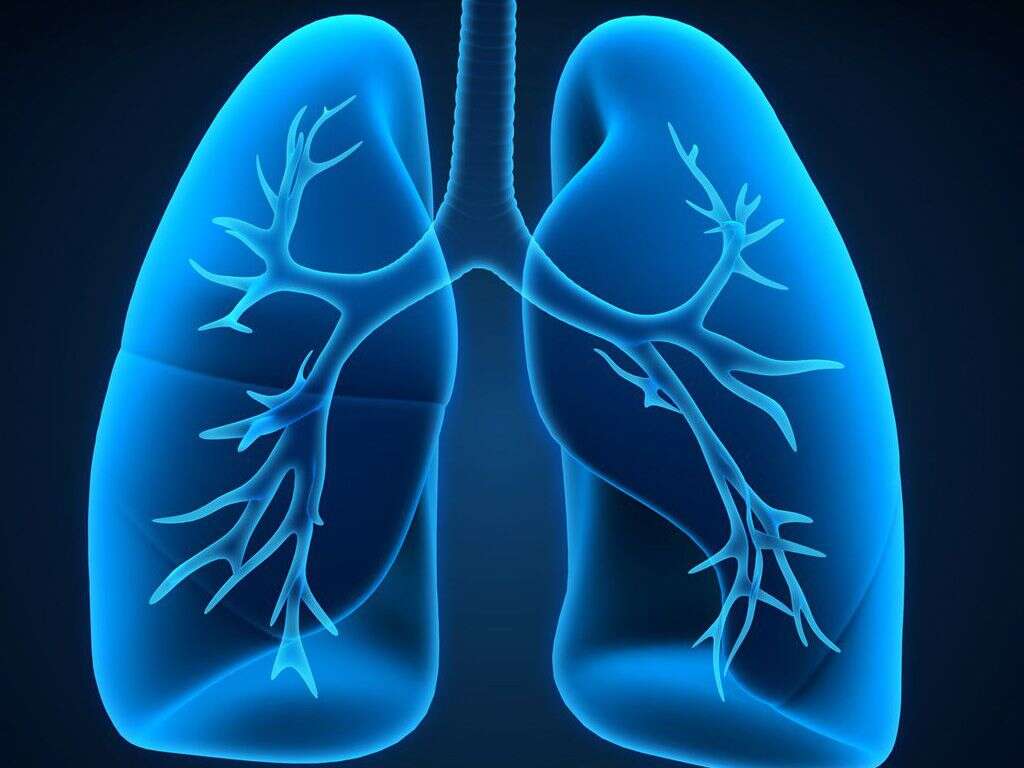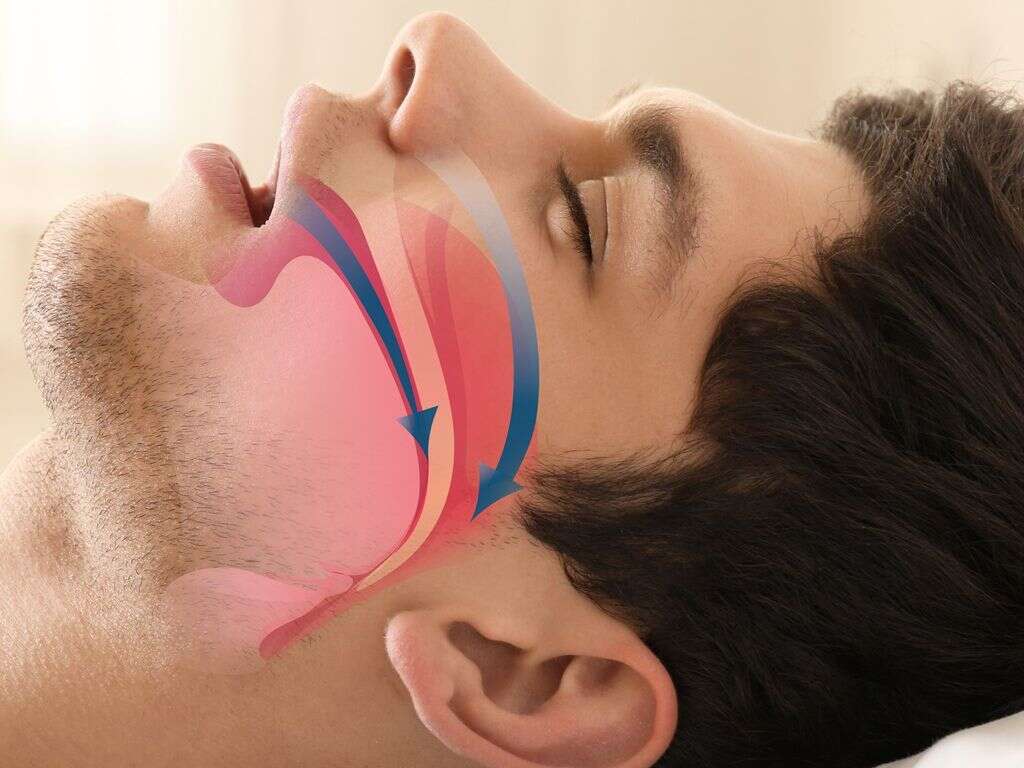10 Causes of Hiccups
A hiccup is an involuntary contraction of the diaphragm. The involuntary action involves the reflex arc, which causes strong contractions of the diaphragm followed by closure of the vocal cords giving hiccups the classic “hic” sound.
Hiccups may present as a distracting or brief interruption in breathing with occasional momentary pain in the chest, abdomen, or throat.
Hiccups usually resolve on their own without the need for intervention. However, there are many home remedies that are available in an attempt to shorten the duration of hiccups. For chronic hiccups, medical treatment may be necessary.

Cause #1: Gastroesophageal Reflux Disease
Gastroesophageal reflux disease (GERD) is a chronic disorder where there is regurgitation of stomach contents into the esophagus resulting in heartburn, chest pain, bad breath, vomiting, esophagitis, Barrett’s esophagus, and esophageal stricture. The risk factors of GERD include smoking, obesity, pregnancy, hiatal hernia, and use of medications such as depressants, antihistamines, or calcium channel blockers.
Hiccups can also occur in patients with GERD when there is irritation of the phrenic or vagus nerves that serve the diaphragm muscle. Treatment and management of GERD involves a healthy diet, weight loss, stopping smoking, and medications such as H2 receptor blockers, antacids, prokinetics, and protein pump inhibitors.

Cause #2: Hiatal Hernia
Hiatal hernia is hernia of the abdominal organs where it has slipped through the diaphragm into the thoracic cavity. This can result in gastroesophageal reflux or laryngopharyngeal reflux. Patients may experience a bad taste in the mouth, heartburn, difficulty swallowing, chest pain, and more.
Hiatal hernia is most common among those who are more advanced in age and obese. Symptoms may improve by raising the head of the bed, adjusting eating habits, and weight loss. Medications that may help include proton pump inhibitors and H2 blockers. Hiatal hernias have also been reported as a cause of chronic hiccups.

Cause #3: Certain Foods and Beverages
There are certain foods and beverages that are more likely to cause hiccups. Eating too much of fatty or spicy foods can cause stomach distension and irritate the diaphragm leading to hiccups.
Carbonated beverages can also cause stomach distension and hiccups. Consumption of food and beverages too quickly causes excessive air swallowing and abdominal distension. Foods that cause air swallowing such as chewing gum and candy have also been implicated.

Cause #4: Goiter, Tumor, or Cyst in the Neck
A goiter is a swelling in the neck due to the enlargement of the thyroid gland. More than 90 percent of goiters are caused by iodine deficiency. It may be associated with hyperthyroidism or hypothyroidism. A tumor or cyst in the neck can be from the thyroid gland or other surrounding structures.
Hiccups may occur in patients with a goiter, tumor, or cyst in the neck if the growth irritates the phrenic or vagus nerves that supply the diaphragm muscle. Those with an undiagnosed lump in the neck should seek medical opinion as it could improve prognosis if there is early diagnosis and treatment.

Cause #5: Encephalitis
Encephalitis is a condition where there is inflammation of the brain. Depending on the severity of the condition, symptoms may include a stiff neck, headache, fever, vomiting, nausea, confusion, seizures, hallucinations, and memory issues.
Encephalitis can be due to an infection of viral, bacterial, parasitic, or fungal origin. It can also be caused by an autoimmune disorder. Some causes of encephalitis can be prevented through vaccines. Treatment depends on the underlying cause and usually requires hospitalization. Hiccups may occur in some patients if there is involvement of the central nervous system that controls the hiccup reflex.
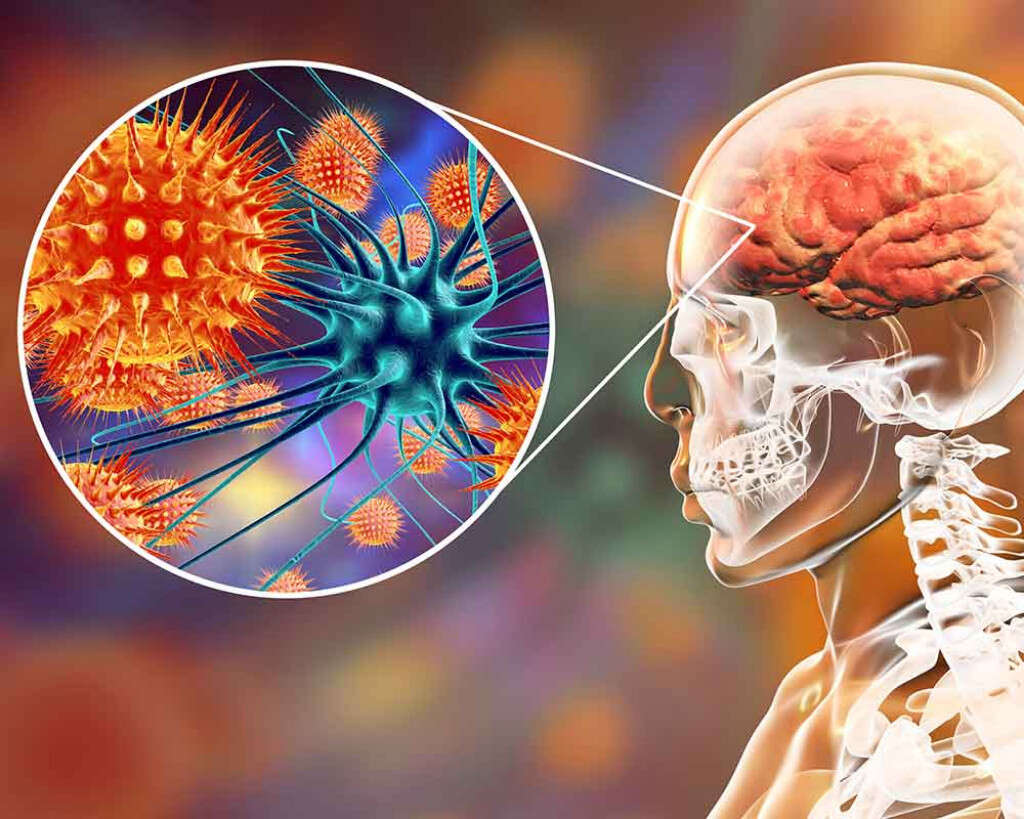
Cause #6: Multiple Sclerosis
Multiple sclerosis is a condition where the insulating covers of the neurons known as the myelin sheath are damaged. This demyelination is seen in the neurons of the spinal cord and brain causing disruption of the nervous system to communicate resulting in psychiatric, physical, and mental symptoms.
Examples include blindness, double vision, muscle weakness, trouble with coordination, and sensory issues. Multiple sclerosis can occur as a progressive or relapsing form. In multiple sclerosis, involvement of the central nervous system can cause issues with control of the hiccup reflex leading to chronic hiccups.

Cause #7: Meningitis
Meningitis is a term describing inflammation of the membranes surrounding the brain and spinal cord. The membranes are collectively known as the meninges. Patients with meningitis most commonly experience neck stiffness, headache, fever, altered consciousness, confusion, vomiting, irritability, drowsiness, photophobia, phonophobia, and loss of appetite. Meningitis can be caused by bacteria, viruses, or other microorganisms. It can also be caused by certain drugs.
Meningitis is serious as it is a life-threatening condition as the inflammation is close to the spinal cord and brain. Hiccups may also occur as the infection damages or disrupts the central nervous system that controls the hiccup reflex.

Cause #8: Traumatic Brain Injury
Traumatic brain injury, or intracranial injury, occurs when there is an external force that damages or injures the brain. It can be classified based on several factors such as mechanism, severity, or location. Traumatic brain injury can cause social, physical, emotional, cognitive, and behavioural issues. Based on the severity, the prognosis can range from complete recovery to permanent disability or death.
Causes of traumatic brain injury include violence, road traffic accidents, and falls. Hiccups can occur in patients who have a traumatic brain injury if there is damage to the central nervous system that disrupts the body’s normal control of the hiccup reflex.
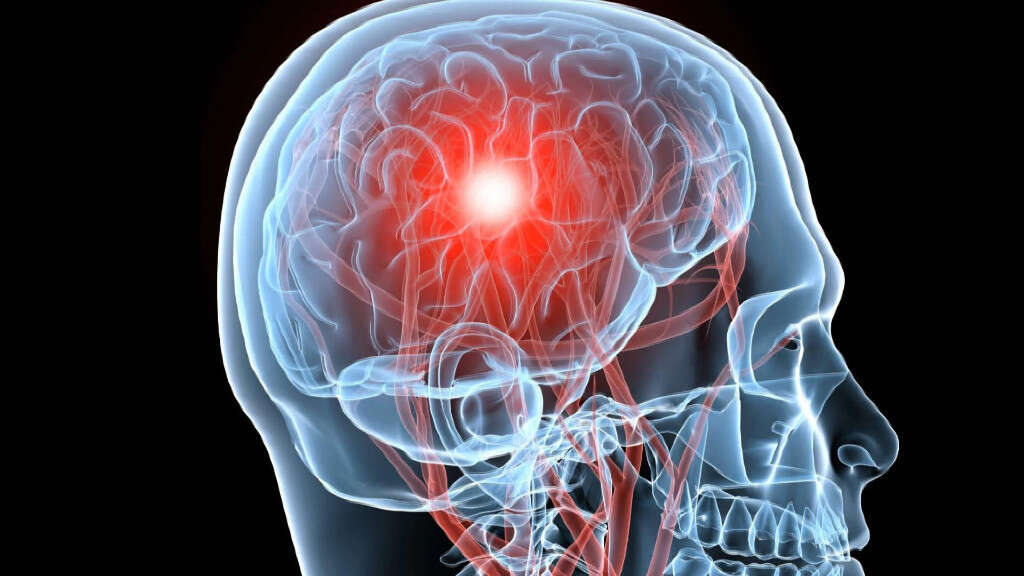
Cause #9: Laryngitis
Laryngitis refers to inflammation of the voice box or larynx. Patients with laryngitis may experience fever, cough, hoarse voice, difficulty swallowing, and sore throat. In most cases, the symptoms usually resolve in less than 2 weeks. Acute laryngitis refers to laryngitis that lasts less than 3 weeks while chronic laryngitis refers to laryngitis lasting more than 3 weeks.
Acute laryngitis is most often due to a viral infection causing an upper respiratory tract infection. Chronic laryngitis causes include allergies, acid reflux, tuberculosis, smoking, sarcoidosis, and rheumatoid arthritis. Laryngitis can also cause hiccups if the phrenic or vagus nerves that supply the diaphragm are affected.
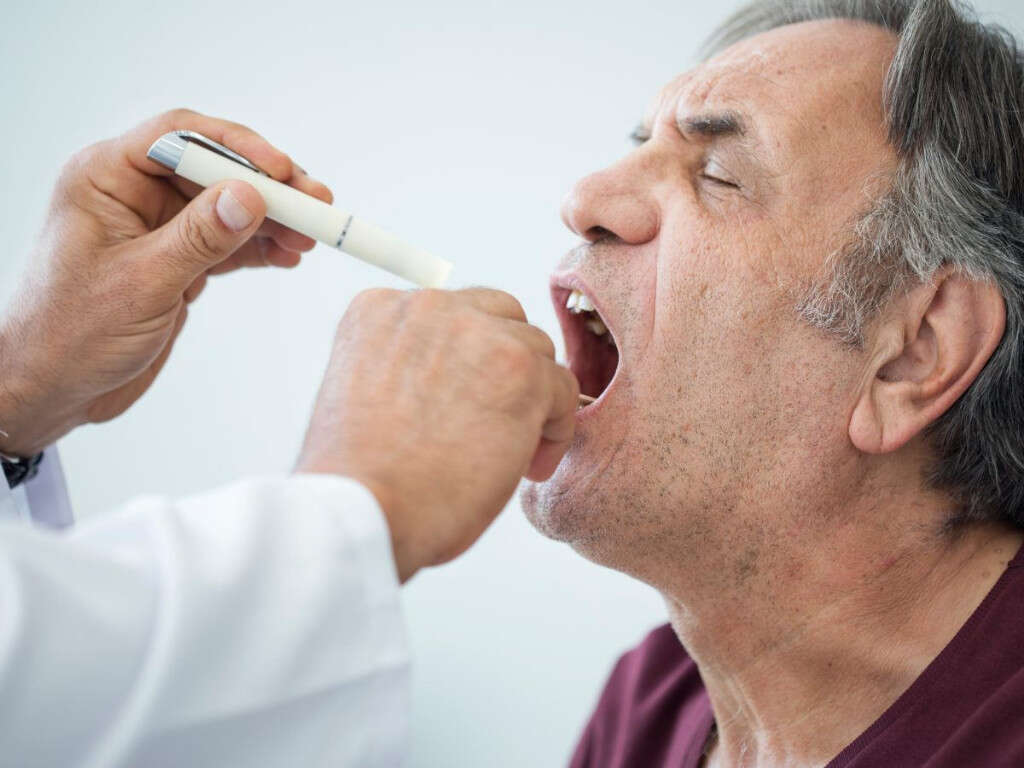
Cause #10: Surgery
Surgery is a term describing a medical specialty where instrumental techniques are used on a patient for treatment, investigative purposes, or improvement of bodily function. The act can be called an operation, surgical procedure, or surgery. Like all procedures, surgery comes with potential risks such as bleeding and infection. It may also cause hiccups.
Hiccups that occur after surgery are believed to be due to a mild injury or irritation to the phrenic nerve that controls the diaphragm resulting in spasms and hiccups. It can be seen among individuals who undergo general anesthesia or after surgery involving the abdominal organs.






